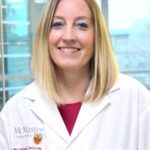IIDR Administration
Matthew Miller
Scientific Director, IIDR
Associate Professor
Biochemistry & Biomedical Sciences
Research in the Miller Laboratory is divided into three main areas of focus: Innate & Adaptive Immunity Upon infection, both the innate and adaptive immune system is mobilized to protect the host from virus-mediated pathologies. The Miller Lab focuses on understanding both the protective and harmful qualities of immune responses – essential information for developing novel vaccines and therapeutics. Influenza Virus Influenza A virus (IAV) presents a particularly formidable challenge to the adaptive immune system. The virus has specific properties that allow it to cause seasonal epidemics and periodic pandemics, which leads to current- generation IAV vaccines having to be administered seasonally, while providing optimal protection against only a very limited number of IAV strains. However, a new class of antibodies has recently been discovered which is capable of providing much more broad protection across multiple IAV subtypes. The Miller group is focused on understanding the immunobiology of these antibodies, how they are elicited, and how they may be useful for the generation of “universal” influenza virus vaccines and therapeutics. ALS Abnormal inflammation is a signature of many neurodegenerative diseases, yet the way in which inflammation contributes to the pathology of these diseases is poorly defined. The Miller Lab is working to understand the role of inflammation in the etiology of neurodegenerative diseases, with a specific focus on its role in amyotrophic lateral sclerosis (ALS).

Matthew Miller
Scientific Director, IIDR
Associate Professor
Biochemistry & Biomedical Sciences
Lori Burrows
Associate Director, IIDR
Professor
Biochemistry & Biomedical Sciences
Type IV Pili
Many species of bacteria produce long, thin, flexible appendages called type IV pili (T4P). T4P can be rapidly and repeatedly extended and retracted, allowing bacteria to capture DNA and stick to different surfaces. T4P allows bacteria to ‘feel’ surface contact, which then turns on the expression of surface-associated genes, such as those involved in biofilm formation. Further, T4P are receptors for bacteriophages, and can even act as wires to conduct electricity in some species. The Burrows Lab investigates multiple aspects of T4P and has many ongoing projects ranging from studying the machine that makes T4P, the motor that extends and retracts them, the diversity of the subunits that make up T4P and its relationship to phage escape, and the regulatory pathways involved in surface sensing, among other projects.
Biofilms
Biofilms are communities of bacteria that grow on surfaces. They make cells more tolerant of disinfectants and antibiotics, making biofilm infections difficult to treat. The Burrows Lab studies how biofilms develop in response to chemical cues, particularly antibiotics. Sub-lethal concentrations of antibiotics stimulate biofilm formation – they study how this phenotype is induced, and exploit it to identify new antimicrobials in complex mixtures or compound libraries.

Lori Burrows
Associate Director, IIDR
Professor
Biochemistry & Biomedical Sciences
Laurel Person Mecca
Project Officer
Laurel Person Mecca has enjoyed a career working with faculty and students in support of multidisciplinary research. At the IIDR and DBCAD, Laurel supports a wide variety of initiatives. As Project Officer, she manages award/scholarship submissions, coordinates grant applications, plans events, and reports on members’ scholarly activities.
Larissa Viana
Administrative Assistant
With over 15 years of experience working in fast-paced office environments in large companies and educational settings, Larissa Viana provides the administrative support needed at IIDR. With a bachelor’s degree in advertising, a post-graduation certificate in marketing, and a diploma in office administration, Larissa uses her skills to oversee the day-to-day administrative operations of the IIDR ensuring that the office environment runs efficiently by providing the necessary structure and resources.
Blake Dillon
Strategic Communications Manager
Blake Dillon is a multimedia and communications specialist with a diverse background in journalism, graphic design, web development, corporate communications, and brand strategy implementation. At the IIDR, Blake is responsible for promoting the institute’s projects and research initiatives and helps to build its profile and visibility with both the internal and external community. Blake also supports McMaster’s Global Nexus on similar communications initiatives.
Matthew Miller
Scientific Director, IIDR
Associate Professor
Biochemistry & Biomedical Sciences
Research in the Miller Laboratory is divided into three main areas of focus: Innate & Adaptive Immunity Upon infection, both the innate and adaptive immune system is mobilized to protect the host from virus-mediated pathologies. The Miller Lab focuses on understanding both the protective and harmful qualities of immune responses – essential information for developing novel vaccines and therapeutics. Influenza Virus Influenza A virus (IAV) presents a particularly formidable challenge to the adaptive immune system. The virus has specific properties that allow it to cause seasonal epidemics and periodic pandemics, which leads to current- generation IAV vaccines having to be administered seasonally, while providing optimal protection against only a very limited number of IAV strains. However, a new class of antibodies has recently been discovered which is capable of providing much more broad protection across multiple IAV subtypes. The Miller group is focused on understanding the immunobiology of these antibodies, how they are elicited, and how they may be useful for the generation of “universal” influenza virus vaccines and therapeutics. ALS Abnormal inflammation is a signature of many neurodegenerative diseases, yet the way in which inflammation contributes to the pathology of these diseases is poorly defined. The Miller Lab is working to understand the role of inflammation in the etiology of neurodegenerative diseases, with a specific focus on its role in amyotrophic lateral sclerosis (ALS).
Matthew Miller
Scientific Director, IIDR
Associate Professor
Biochemistry & Biomedical Sciences
Research in the Miller Laboratory is divided into three main areas of focus: Innate & Adaptive Immunity Upon infection, both the innate and adaptive immune system is mobilized to protect the host from virus-mediated pathologies. The Miller Lab focuses on understanding both the protective and harmful qualities of immune responses – essential information for developing novel vaccines and therapeutics. Influenza Virus Influenza A virus (IAV) presents a particularly formidable challenge to the adaptive immune system. The virus has specific properties that allow it to cause seasonal epidemics and periodic pandemics, which leads to current- generation IAV vaccines having to be administered seasonally, while providing optimal protection against only a very limited number of IAV strains. However, a new class of antibodies has recently been discovered which is capable of providing much more broad protection across multiple IAV subtypes. The Miller group is focused on understanding the immunobiology of these antibodies, how they are elicited, and how they may be useful for the generation of “universal” influenza virus vaccines and therapeutics. ALS Abnormal inflammation is a signature of many neurodegenerative diseases, yet the way in which inflammation contributes to the pathology of these diseases is poorly defined. The Miller Lab is working to understand the role of inflammation in the etiology of neurodegenerative diseases, with a specific focus on its role in amyotrophic lateral sclerosis (ALS).
Lori Burrows
Associate Director, IIDR
Professor
Biochemistry & Biomedical Sciences
Type IV Pili
Many species of bacteria produce long, thin, flexible appendages called type IV pili (T4P). T4P can be rapidly and repeatedly extended and retracted, allowing bacteria to capture DNA and stick to different surfaces. T4P allows bacteria to ‘feel’ surface contact, which then turns on the expression of surface-associated genes, such as those involved in biofilm formation. Further, T4P are receptors for bacteriophages, and can even act as wires to conduct electricity in some species. The Burrows Lab investigates multiple aspects of T4P and has many ongoing projects ranging from studying the machine that makes T4P, the motor that extends and retracts them, the diversity of the subunits that make up T4P and its relationship to phage escape, and the regulatory pathways involved in surface sensing, among other projects.
Biofilms
Biofilms are communities of bacteria that grow on surfaces. They make cells more tolerant of disinfectants and antibiotics, making biofilm infections difficult to treat. The Burrows Lab studies how biofilms develop in response to chemical cues, particularly antibiotics. Sub-lethal concentrations of antibiotics stimulate biofilm formation – they study how this phenotype is induced, and exploit it to identify new antimicrobials in complex mixtures or compound libraries.
Lori Burrows
Associate Director, IIDR
Professor
Biochemistry & Biomedical Sciences
Type IV Pili
Many species of bacteria produce long, thin, flexible appendages called type IV pili (T4P). T4P can be rapidly and repeatedly extended and retracted, allowing bacteria to capture DNA and stick to different surfaces. T4P allows bacteria to ‘feel’ surface contact, which then turns on the expression of surface-associated genes, such as those involved in biofilm formation. Further, T4P are receptors for bacteriophages, and can even act as wires to conduct electricity in some species. The Burrows Lab investigates multiple aspects of T4P and has many ongoing projects ranging from studying the machine that makes T4P, the motor that extends and retracts them, the diversity of the subunits that make up T4P and its relationship to phage escape, and the regulatory pathways involved in surface sensing, among other projects.
Biofilms
Biofilms are communities of bacteria that grow on surfaces. They make cells more tolerant of disinfectants and antibiotics, making biofilm infections difficult to treat. The Burrows Lab studies how biofilms develop in response to chemical cues, particularly antibiotics. Sub-lethal concentrations of antibiotics stimulate biofilm formation – they study how this phenotype is induced, and exploit it to identify new antimicrobials in complex mixtures or compound libraries.
Laurel Person Mecca
Project Officer
Laurel Person Mecca has enjoyed a career working with faculty and students in support of multidisciplinary research. At the IIDR and DBCAD, Laurel supports a wide variety of initiatives. As Project Officer, she manages award/scholarship submissions, coordinates grant applications, plans events, and reports on members’ scholarly activities.
Laurel Person Mecca
Project Officer
Laurel Person Mecca has enjoyed a career working with faculty and students in support of multidisciplinary research. At the IIDR and DBCAD, Laurel supports a wide variety of initiatives. As Project Officer, she manages award/scholarship submissions, coordinates grant applications, plans events, and reports on members’ scholarly activities.
Larissa Viana
Administrative Assistant
With over 15 years of experience working in fast-paced office environments in large companies and educational settings, Larissa Viana provides the administrative support needed at IIDR. With a bachelor’s degree in advertising, a post-graduation certificate in marketing, and a diploma in office administration, Larissa uses her skills to oversee the day-to-day administrative operations of the IIDR ensuring that the office environment runs efficiently by providing the necessary structure and resources.
Larissa Viana
Administrative Assistant
With over 15 years of experience working in fast-paced office environments in large companies and educational settings, Larissa Viana provides the administrative support needed at IIDR. With a bachelor’s degree in advertising, a post-graduation certificate in marketing, and a diploma in office administration, Larissa uses her skills to oversee the day-to-day administrative operations of the IIDR ensuring that the office environment runs efficiently by providing the necessary structure and resources.
Blake Dillon
Strategic Communications Manager
Blake Dillon is a multimedia and communications specialist with a diverse background in journalism, graphic design, web development, corporate communications, and brand strategy implementation. At the IIDR, Blake is responsible for promoting the institute’s projects and research initiatives and helps to build its profile and visibility with both the internal and external community. Blake also supports McMaster’s Global Nexus on similar communications initiatives.
Blake Dillon
Strategic Communications Manager
Blake Dillon is a multimedia and communications specialist with a diverse background in journalism, graphic design, web development, corporate communications, and brand strategy implementation. At the IIDR, Blake is responsible for promoting the institute’s projects and research initiatives and helps to build its profile and visibility with both the internal and external community. Blake also supports McMaster’s Global Nexus on similar communications initiatives.
CMCB Staff
Tracey Campbell
Research Manager
People Card Modal Dialog
Tracey Campbell became the CMCB Research Manager in 2013 and is responsible for overseeing all facility activities. Tracey’s research career has been dedicated to infectious diseases and strategies to combat the ongoing problem of antimicrobial resistance. Tracey obtained her PhD in Biochemistry and Biomedical Sciences from McMaster University, where she worked in the laboratory of Dr. Eric Brown. From there, Tracey completed her postdoctoral studies at Princeton University, where she worked on novel strategies to combat malaria.
Susan McCusker
Protein Lab Technician
People Card Modal Dialog
Susan McCusker joined the CMCB in 2009 as a technician in the cell and protein biology lab and the high throughput screening lab. She has her Master’s degree in microbiology from the University of Guelph, where she worked on the bacterium Mycobacterium paratuberculosis. Prior to joining the CMCB, Susan worked in the private sector developing diagnostic tests for infectious diseases.
Cecilia Murphy
HTS Lab Technician
People Card Modal Dialog
Cecilia Murphy has been a research lab technician focused on High Throughput Screening since 2007. At the CMCB, she works with chemical compound libraries in cell-based and biochemical screens on integrated robotic systems, and provides dedicated HTS support to all CMCB users. Her technical expertise includes programming HTS specialized equipment, troubleshooting, and assisting with chemical library inquiries. Cecilia graduated from McMaster with an Honours Bachelor of Science degree in Biochemistry.
Nicola Henriquez
Mass Spectrometry Technician
People Card Modal Dialog
Nikki Henriquez joined CMCB in 2017 as the Mass Spectrometry Technician. She provides expertise in the development and analysis of mass spec experiments by helping with study design, sample preparation, analysis, data evaluation, and reporting. Prior to McMaster, Nikki worked over 15 years at the University of Guelph in a GLP-certified lab specializing in the chromatographic-based analysis of pesticides from environmental samples in support of government regulatory submissions.
Madoka Akimoto
Research Technician
People Card Modal Dialog
Tracey Campbell
Research Manager
People Card Modal Dialog
Tracey Campbell became the CMCB Research Manager in 2013 and is responsible for overseeing all facility activities. Tracey’s research career has been dedicated to infectious diseases and strategies to combat the ongoing problem of antimicrobial resistance. Tracey obtained her PhD in Biochemistry and Biomedical Sciences from McMaster University, where she worked in the laboratory of Dr. Eric Brown. From there, Tracey completed her postdoctoral studies at Princeton University, where she worked on novel strategies to combat malaria.
Tracey Campbell
Research Manager
People Card Modal Dialog
Tracey Campbell became the CMCB Research Manager in 2013 and is responsible for overseeing all facility activities. Tracey’s research career has been dedicated to infectious diseases and strategies to combat the ongoing problem of antimicrobial resistance. Tracey obtained her PhD in Biochemistry and Biomedical Sciences from McMaster University, where she worked in the laboratory of Dr. Eric Brown. From there, Tracey completed her postdoctoral studies at Princeton University, where she worked on novel strategies to combat malaria.
Susan McCusker
Protein Lab Technician
People Card Modal Dialog
Susan McCusker joined the CMCB in 2009 as a technician in the cell and protein biology lab and the high throughput screening lab. She has her Master’s degree in microbiology from the University of Guelph, where she worked on the bacterium Mycobacterium paratuberculosis. Prior to joining the CMCB, Susan worked in the private sector developing diagnostic tests for infectious diseases.
Susan McCusker
Protein Lab Technician
People Card Modal Dialog
Susan McCusker joined the CMCB in 2009 as a technician in the cell and protein biology lab and the high throughput screening lab. She has her Master’s degree in microbiology from the University of Guelph, where she worked on the bacterium Mycobacterium paratuberculosis. Prior to joining the CMCB, Susan worked in the private sector developing diagnostic tests for infectious diseases.
Cecilia Murphy
HTS Lab Technician
People Card Modal Dialog
Cecilia Murphy has been a research lab technician focused on High Throughput Screening since 2007. At the CMCB, she works with chemical compound libraries in cell-based and biochemical screens on integrated robotic systems, and provides dedicated HTS support to all CMCB users. Her technical expertise includes programming HTS specialized equipment, troubleshooting, and assisting with chemical library inquiries. Cecilia graduated from McMaster with an Honours Bachelor of Science degree in Biochemistry.
Cecilia Murphy
HTS Lab Technician
People Card Modal Dialog
Cecilia Murphy has been a research lab technician focused on High Throughput Screening since 2007. At the CMCB, she works with chemical compound libraries in cell-based and biochemical screens on integrated robotic systems, and provides dedicated HTS support to all CMCB users. Her technical expertise includes programming HTS specialized equipment, troubleshooting, and assisting with chemical library inquiries. Cecilia graduated from McMaster with an Honours Bachelor of Science degree in Biochemistry.
Nicola Henriquez
Mass Spectrometry Technician
People Card Modal Dialog
Nikki Henriquez joined CMCB in 2017 as the Mass Spectrometry Technician. She provides expertise in the development and analysis of mass spec experiments by helping with study design, sample preparation, analysis, data evaluation, and reporting. Prior to McMaster, Nikki worked over 15 years at the University of Guelph in a GLP-certified lab specializing in the chromatographic-based analysis of pesticides from environmental samples in support of government regulatory submissions.
Nicola Henriquez
Mass Spectrometry Technician
People Card Modal Dialog
Nikki Henriquez joined CMCB in 2017 as the Mass Spectrometry Technician. She provides expertise in the development and analysis of mass spec experiments by helping with study design, sample preparation, analysis, data evaluation, and reporting. Prior to McMaster, Nikki worked over 15 years at the University of Guelph in a GLP-certified lab specializing in the chromatographic-based analysis of pesticides from environmental samples in support of government regulatory submissions.
Madoka Akimoto
Research Technician
People Card Modal Dialog
Madoka Akimoto
Research Technician









